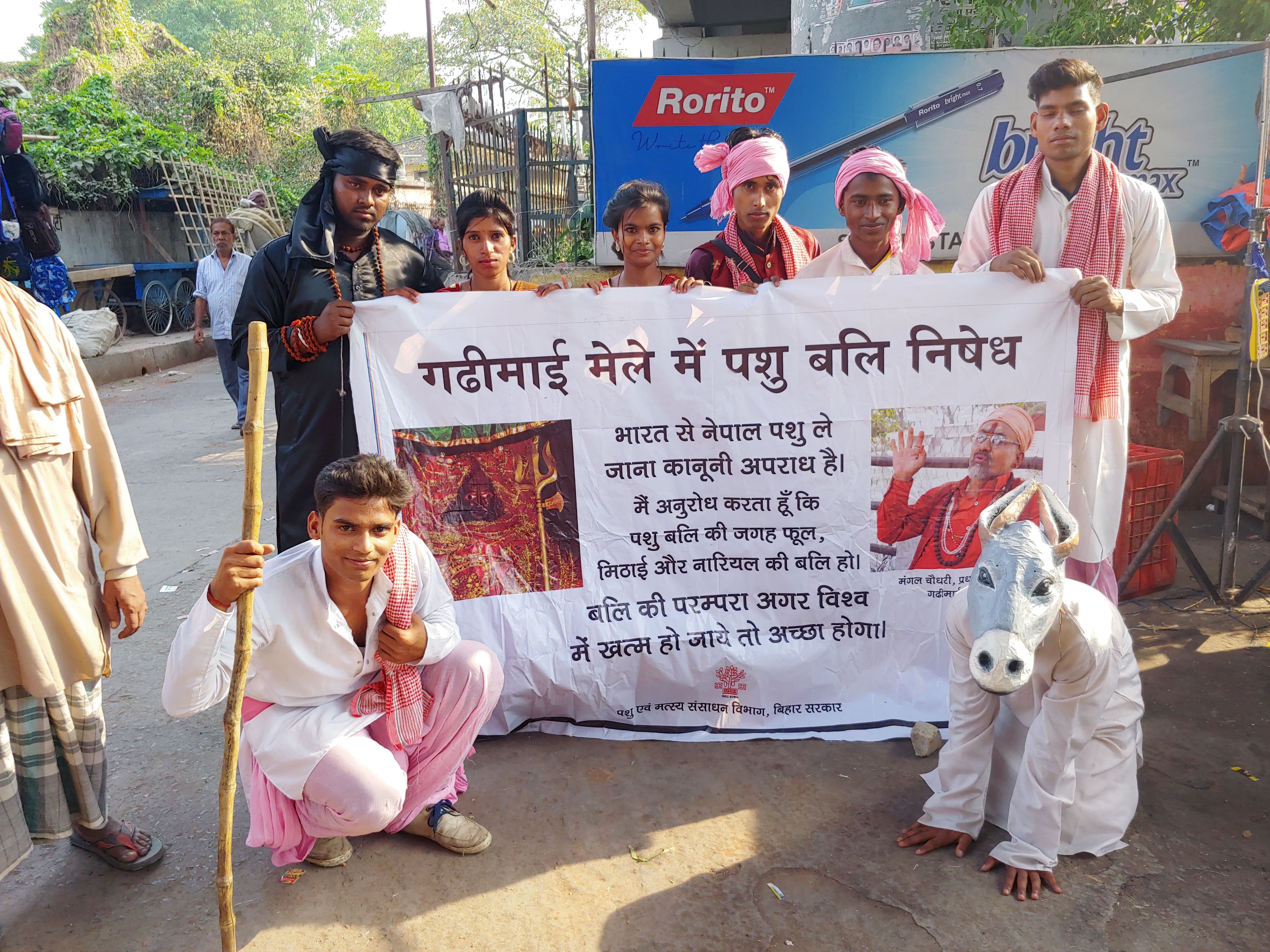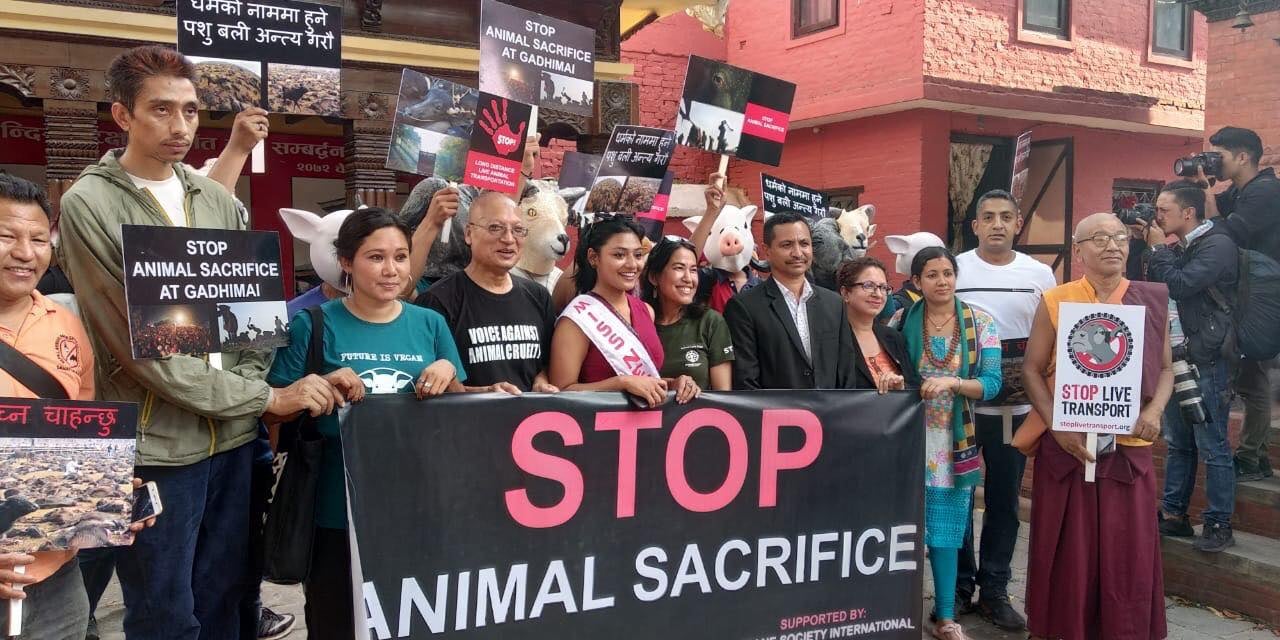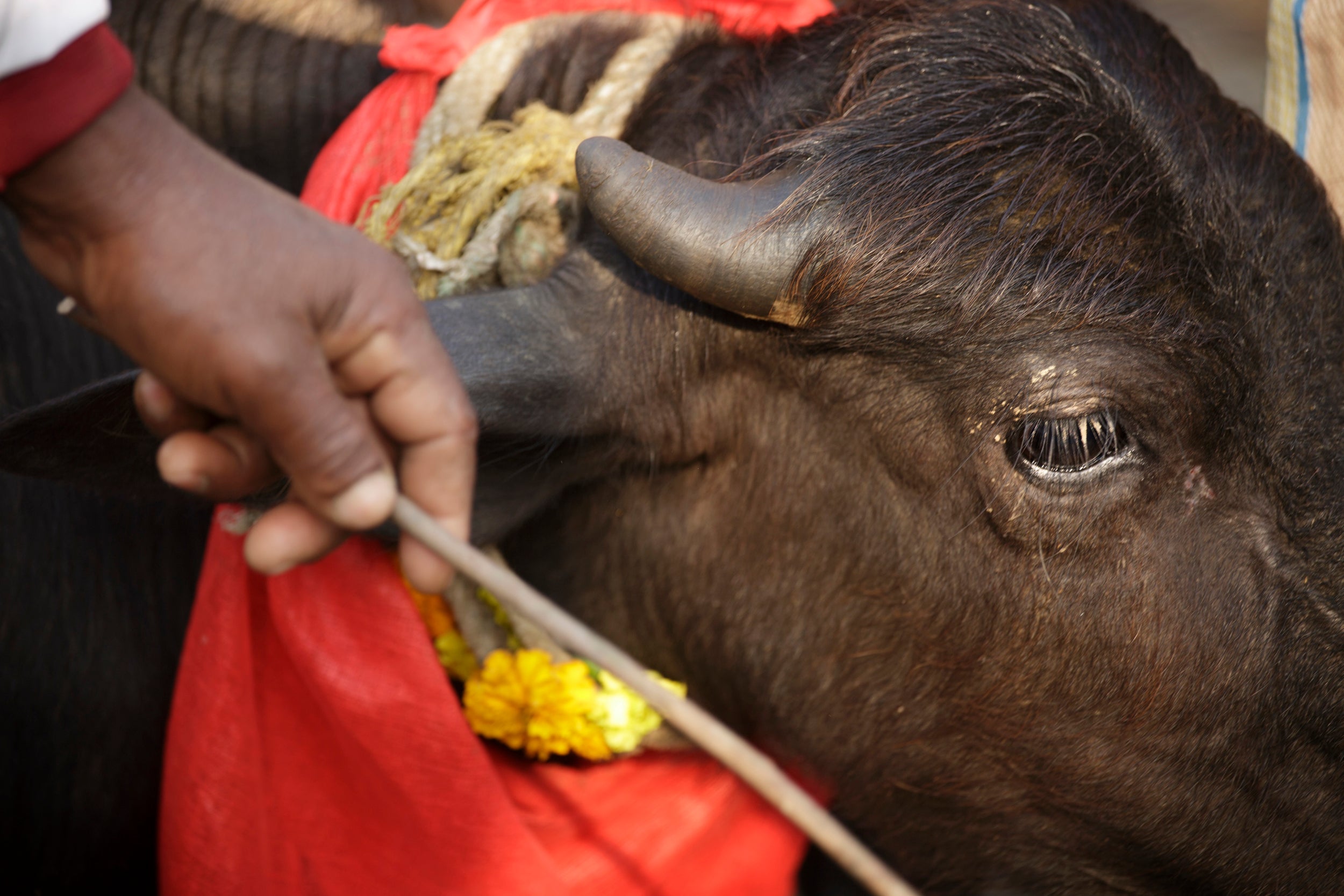Every five years, the world’s largest animal sacrifice takes place at the Gadhimai Temple in the Bara district of Nepal, about 200 km south of the capital, Kathmandu. Following a month-long celebration or “mela,” the festival culminates in the ritual slaughter of tens of thousands of animals. At its height in 2009, around 500,000 buffalo, goats, pigeons and other animals were slaughtered, but thanks to tireless efforts by Humane Society International/India and others including The Federation of Animal Welfare Nepal, Animal Welfare Network Nepal, and People for Animals, the gruesome event has considerably reduced in 2014 to around 30,000 animals including 10,000 buffaloes and then in 2019 to an estimated 3,500 buffalo.
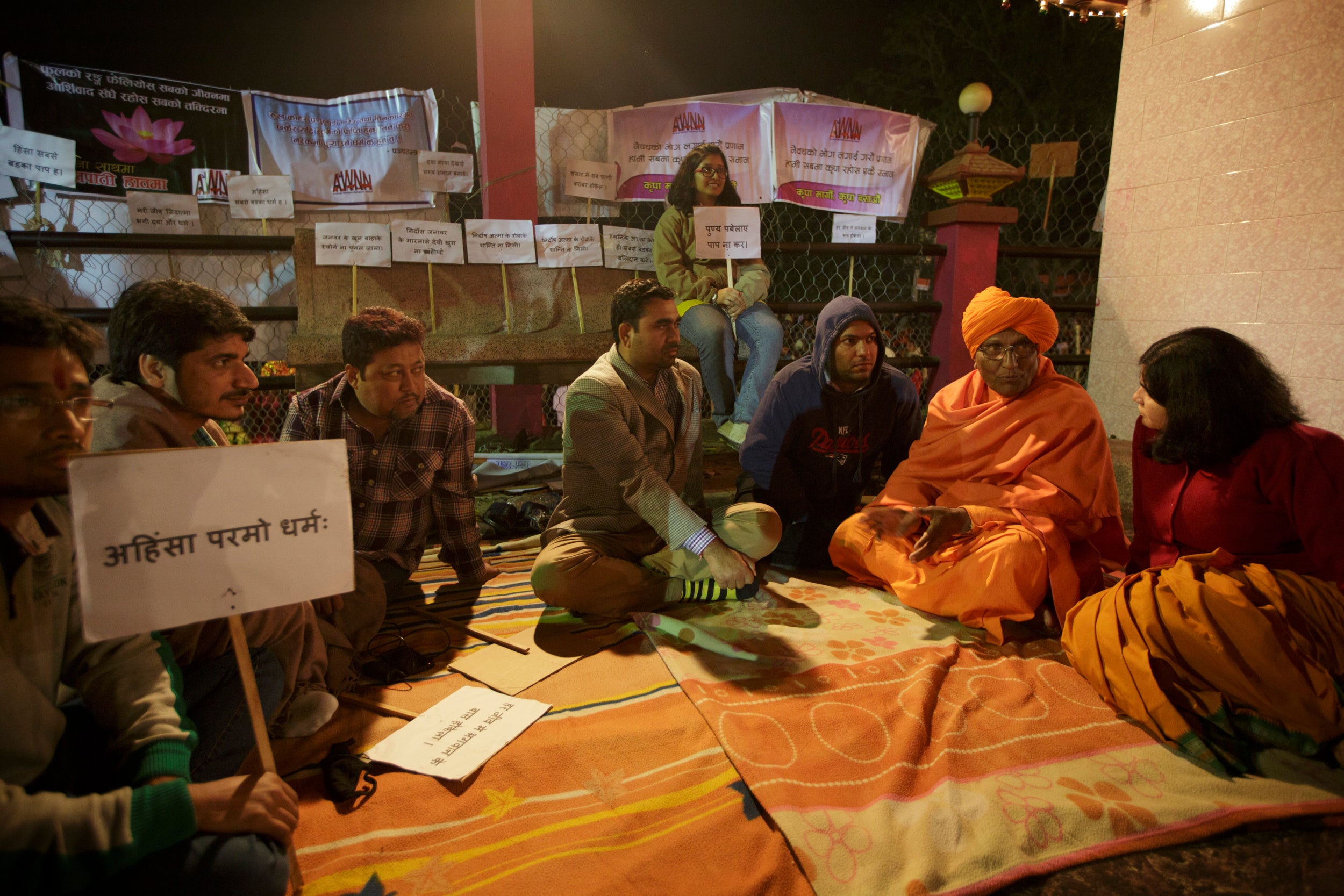
A Temple Trust ban U-turn
In 2015, following rigorous negotiations and campaigning by Animal Welfare Network Nepal and HSI/India, the Gadhimai Temple Trust (officially called the Gadhimai Temple Operation and Development Committee) declared that buffalo sacrifice within the Temple arena would be banned indefinitely at future festivals. However, despite the Temple Priest’s having confirmed the ban in a video statement, the Temple reneged on its promise to have a bloodless Gadhimai. The reality is that the idea of animal sacrifice is so ingrained in the minds of the millions of devotees that breaking that tradition even with the support of the Temple is extremely challenging.
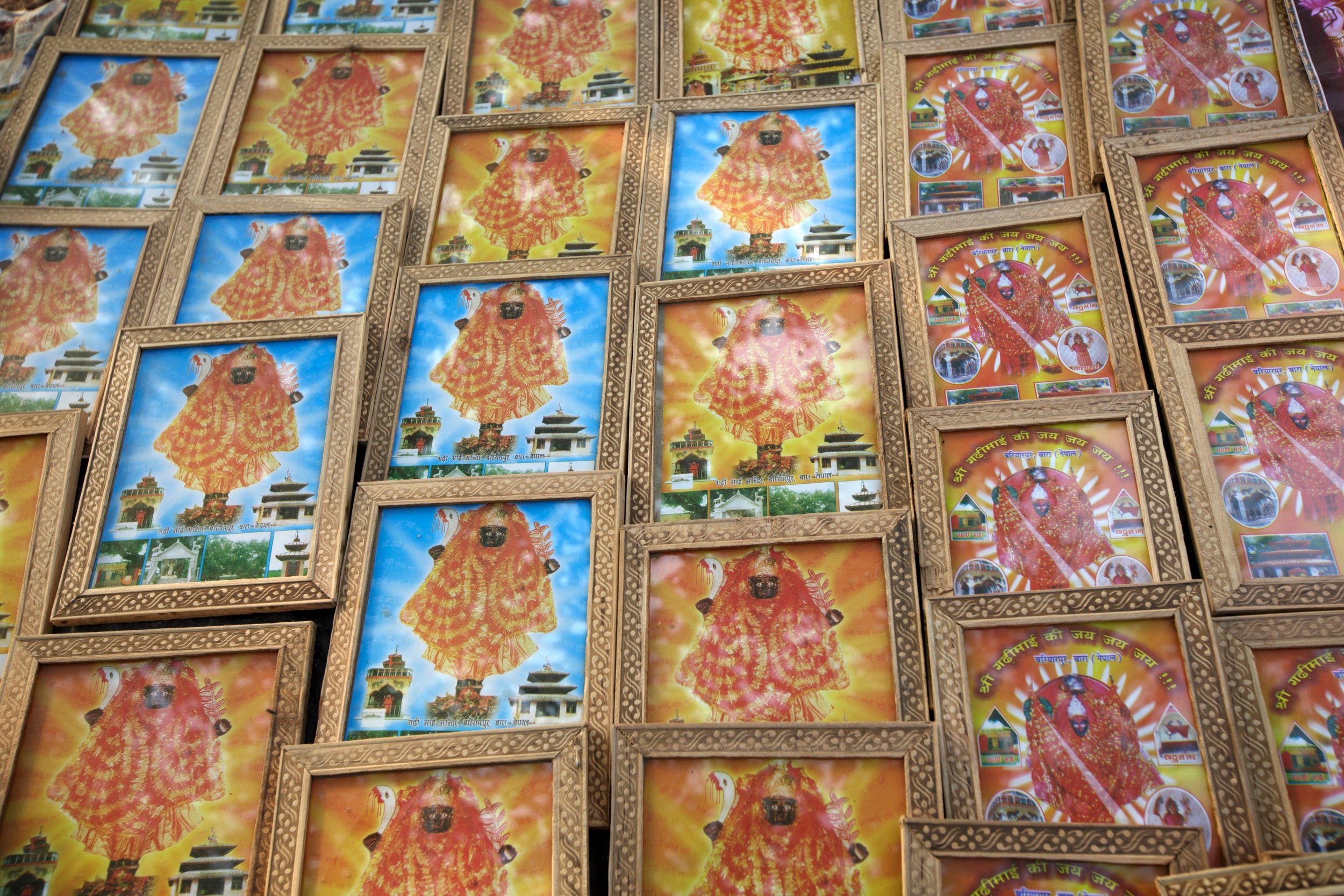
Nepal’s Supreme Court and government speak out
In September 2019, the Supreme Court of Nepal ruled in favour of ending live animal sacrifice at the festival, directing the relevant agencies to create an action plan. This was followed in November by appeals against animal sacrifice issued by Nepal’s Ministry of Culture, Tourism & Civil Aviation, Ministry of Home Affairs, and the Ministry of Communication & Information Technology. These appeals followed a series of workshops and meetings between the government bodies and Humane Society International, FAWN, Jane Goodall Institute Nepal and others on the implementation of the Supreme Court ruling.
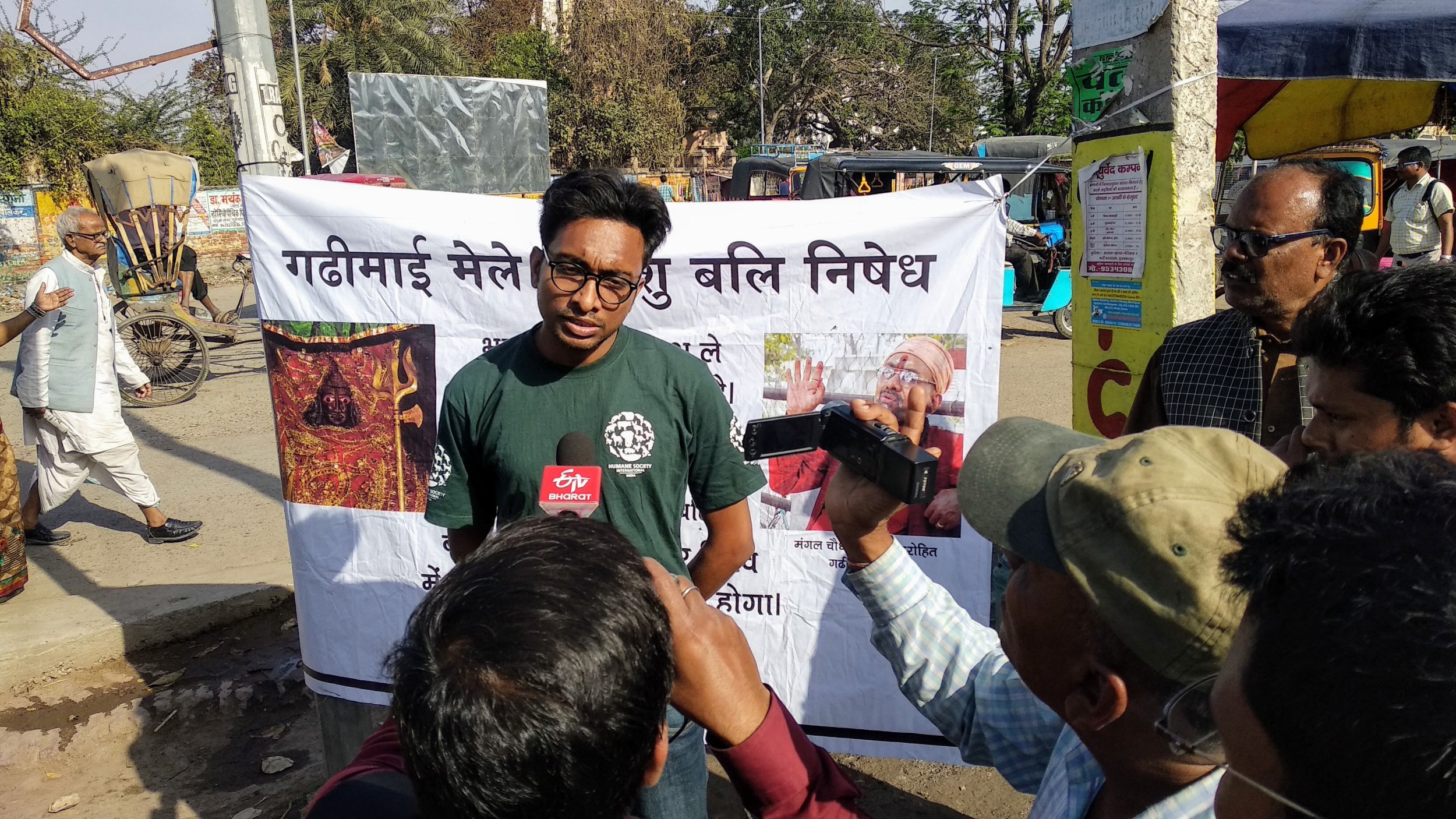
Campaigning for change
For many years, and especially in the months leading up to each Gadhimai festival, HSI and our partners attempt negotiation with the Temple Trust and local officials, as well as work with the Indo-Nepal border force who are positioned at border checkpoints to confiscate animals. We also advance public awareness raising campaigns to ensure that the estimated 5 million devotees attending the festival will hear the message not to bring animals but to bring flowers and seeds to offer to the goddess Gadhimai instead.
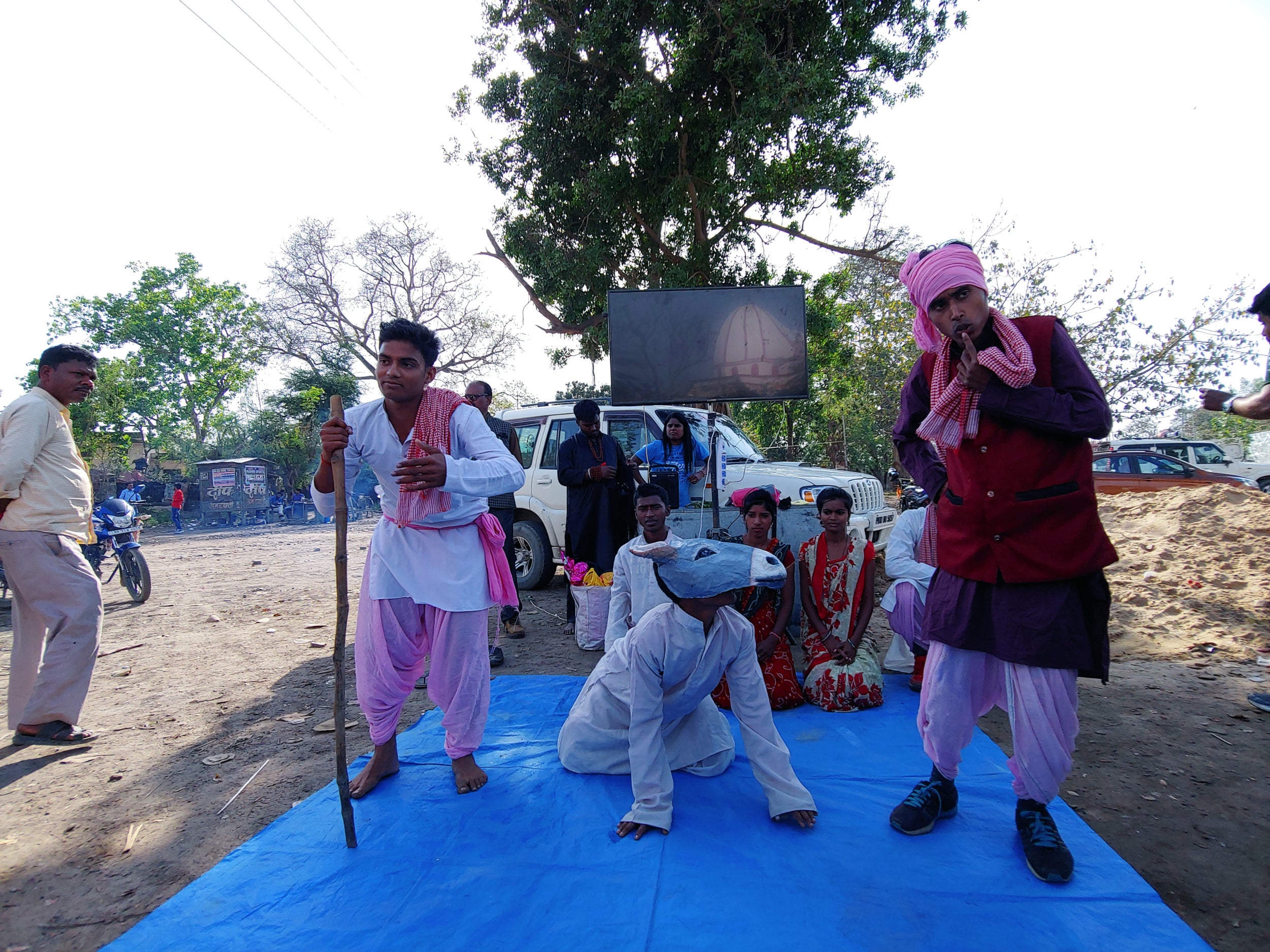
Street theatre
In advance of the 2019 festival, HSI/India, together with Bihar’s Animal Husbandry Department, People for Animals and local organisation Jag Jagran Sansthan, conducted a series of colourful street theatre performances to promote the bloodless Gadhimai message. Our street theatre focused on the key districts of Bihar, via which the majority of devotees travel to Nepal for the festival. In addition to street theatre to reach remote and largely illiterate communities, HSI/India also conducted sensitization workshops for law enforcement agencies, radio and online advertisements and billboards to raise public awareness in multiple languages and dialects.
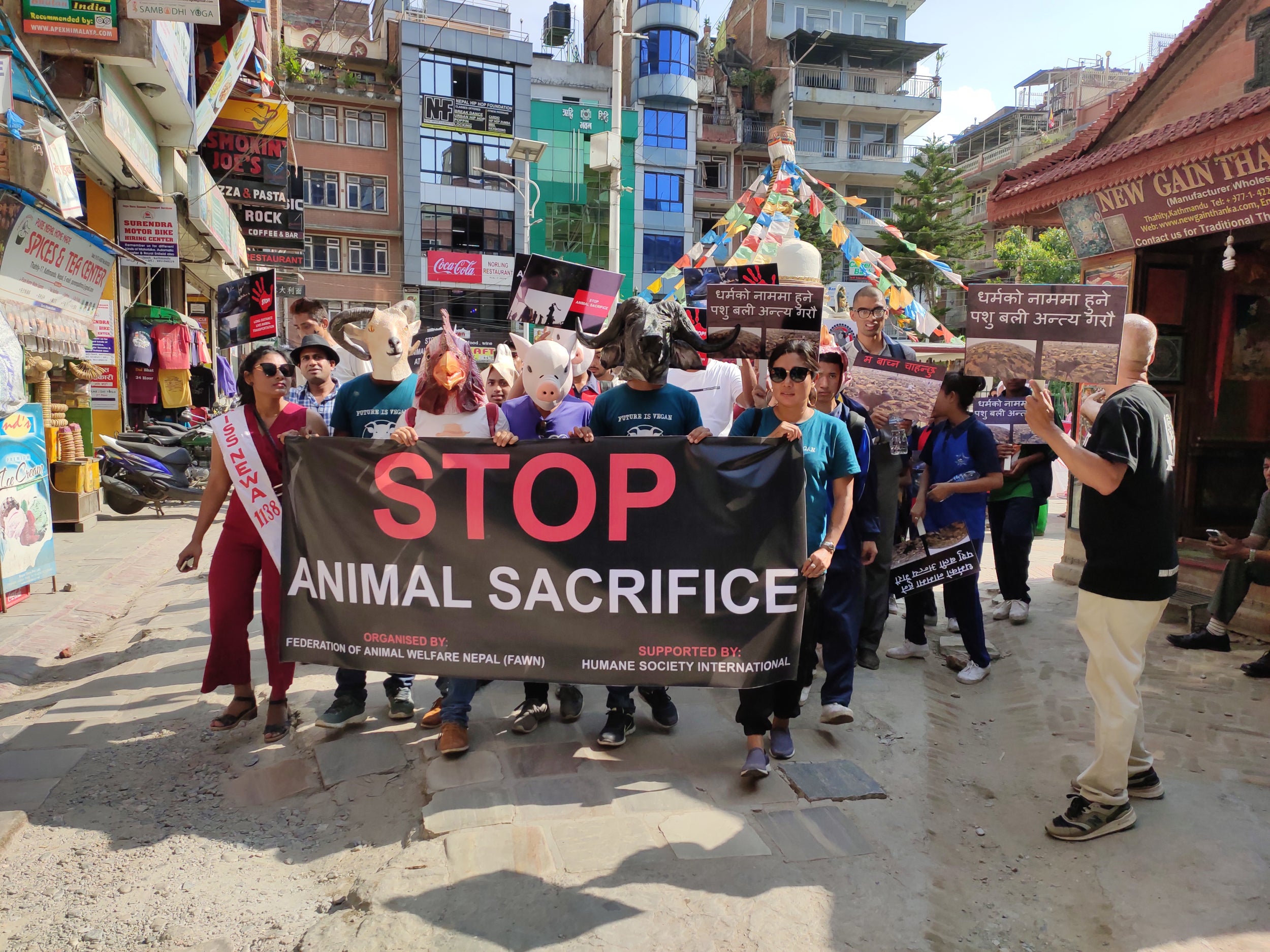
Multi-faith groups unite for compassion
HSI has also worked in partnership with animal welfare and multi-faith groups in Kathmandu to urge the government to ban religious animal sacrifice. Animal groups, students, teachers, lawyers and artists all want to see an end to all animal sacrifice across religious, cultural, caste, ethnic and linguistic groups in Nepal. Together, we have campaigned for the national, provincial and local governments of Nepal to endorse and implement Nepal’s Animal Welfare Act ahead of the Gadhimai festival.
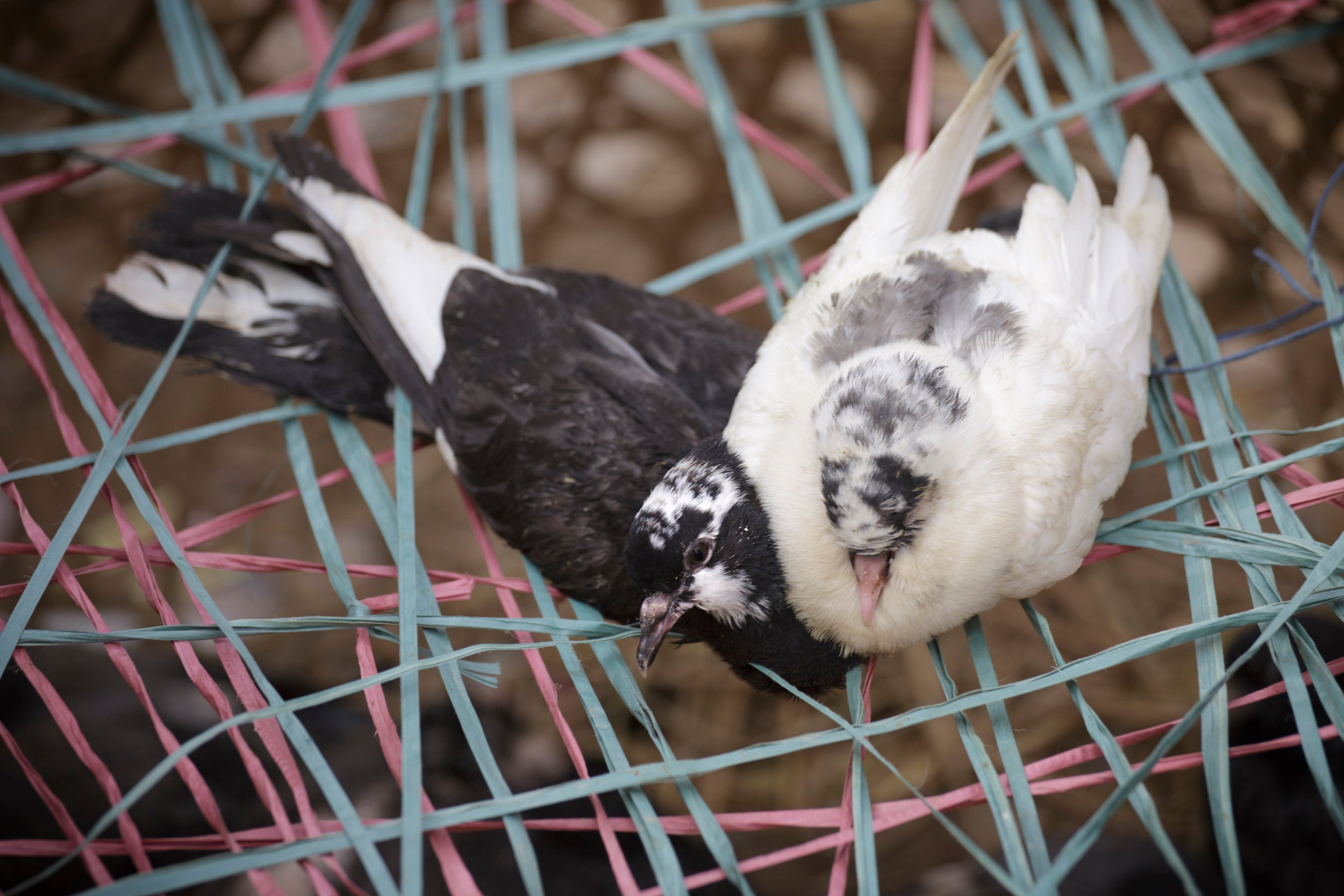
Waiting to die
At the culmination of the event, water buffalo, goats, chickens, pigs, pigeons, ducks and rats are decapitated with blunt metal tools in an alcohol-fuelled killing frenzy. An estimated 70 percent of the animals have historically been imported across the border from India, enduring days of suffering without adequate food, water or shelter during transport. In 2014, HSI India successfully petitioned the Supreme Court of India to order the government of India to take action to stop these illegal border crossings, resulting in thousands of animals being spared. In 2019, HSI/India teams were deployed at the Indo-Nepal border to assist border officials in confiscating animals being brought across from India to be sacrificed, which is against the law. Accompanying the law enforcement officers as they stopped and checked vehicles, HSI removed animals who were found and talked to the devotees about the ban. HSI/India reported that virtually everyone being stopped by the officials was aware that the Gadhimai Temple had declared a ban on animal sacrifice, but they brought animals anyway. It was clear that the habit of providing a blood sacrifice for the goddess has persisted for so long that it is very hard to change people’s mind set. That said, HSI saw far fewer animals than at the previous festival so some progress has been made.
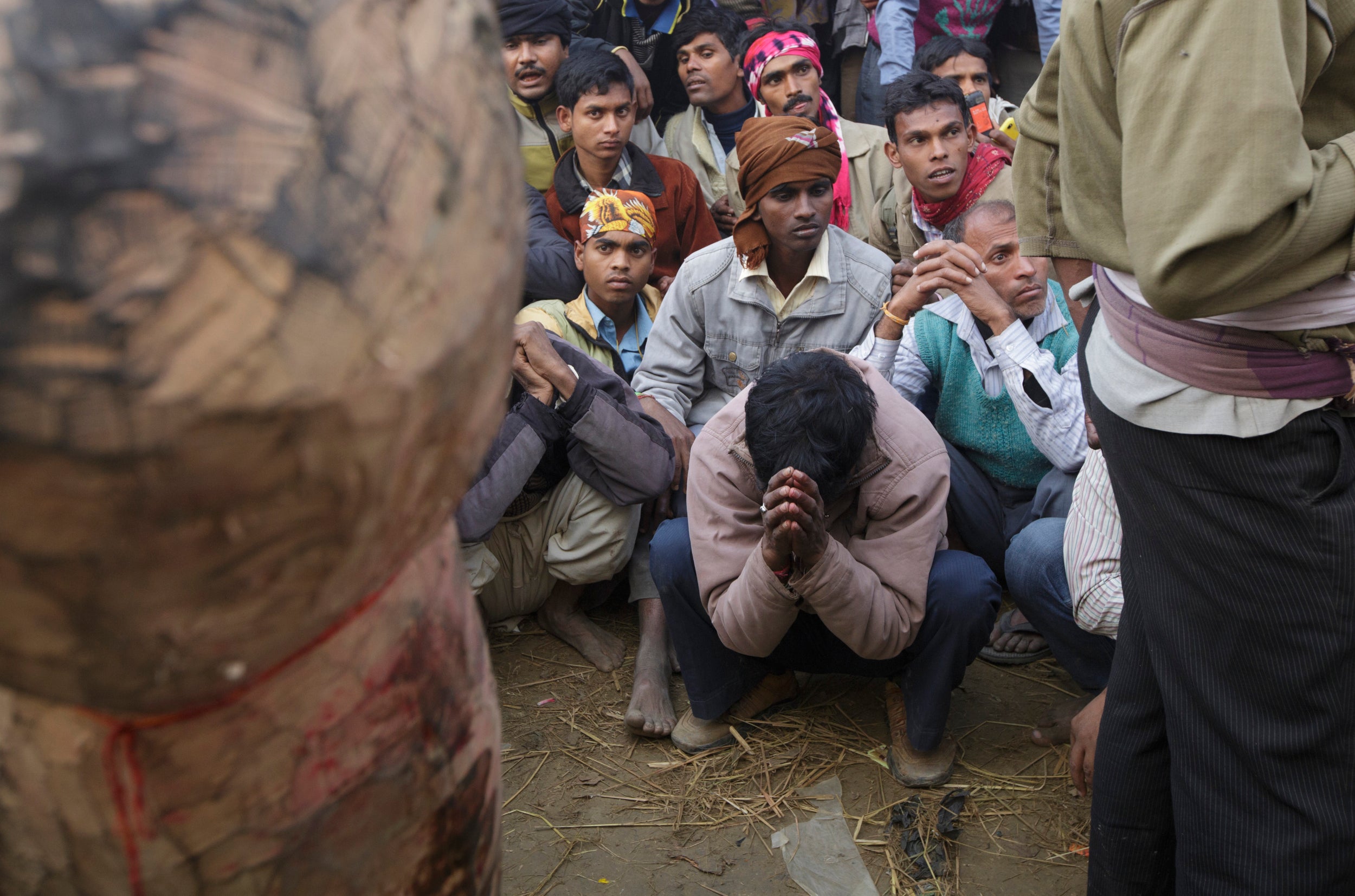
Centuries-old Gadhimai
The origins of Gadhimai date back around 265 years, when the founder of the Gadhimai Temple, Bhagwan Chowdhary, had a dream that the goddess Gadhimai wanted blood in return for freeing him from prison, protecting him from evil and promising prosperity and power. The goddess asked for a human sacrifice, but Chowdhary successfully offered an animal instead, and this has been repeated every five years since.
Festival participants ring bells in prayer. The killing is meant to please the goddess Gadhimai, in hopes of having a wish granted or averting future calamity.
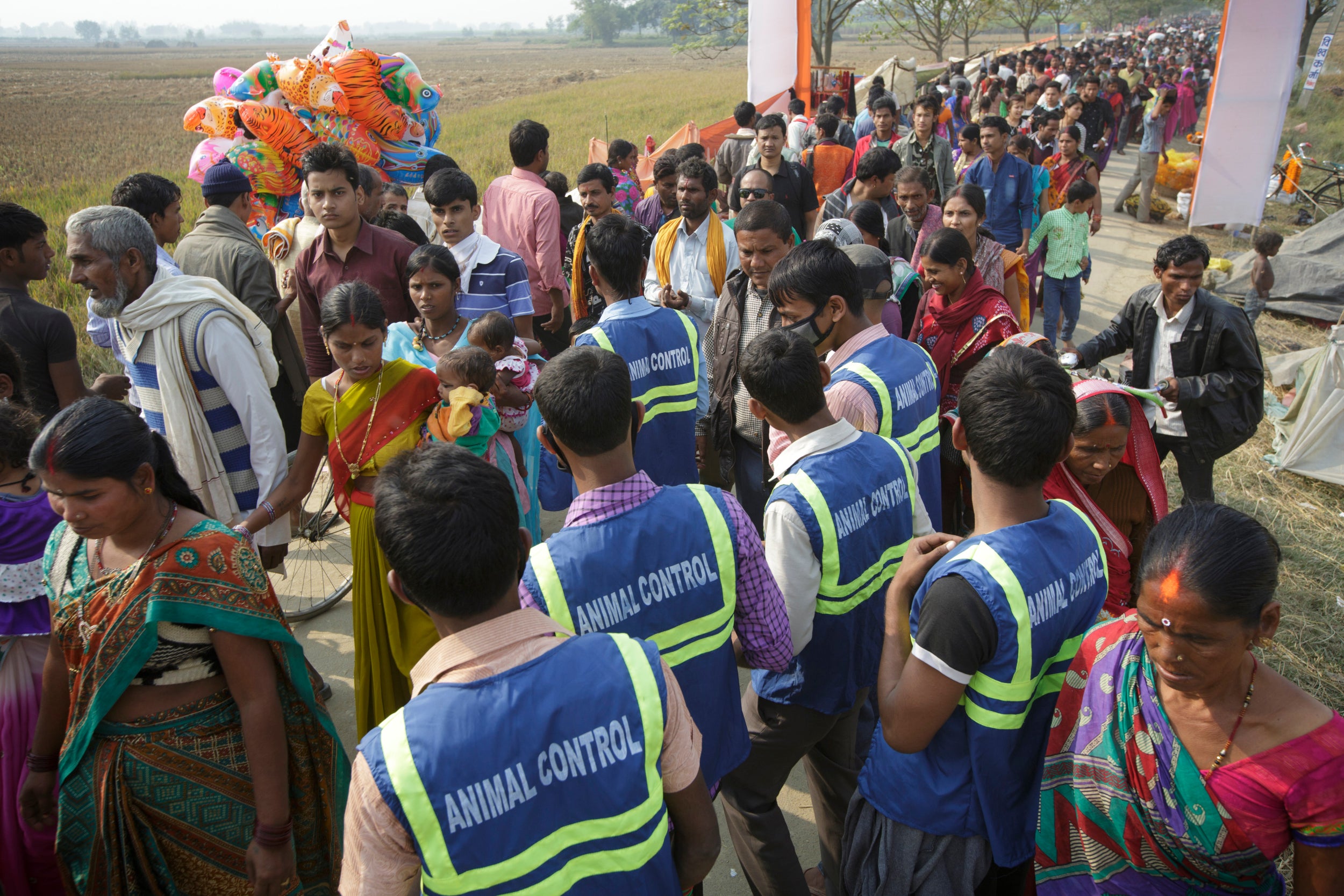
Help us call for a bloodless Gadhimai
As in years past, Humane Society International will be on the ground at the Indo-Nepal border to assist law enforcement in confiscating as many animals as possible. When the scale of suffering is this huge, every life saved is a miracle. HSI/India will also ensure that confiscated animals receive proper care. This is exhausting work in very challenging conditions. Please help by raising your voice with ours to urge the Prime Minister of Nepal to intervene and call for a bloodless Gadhimai.
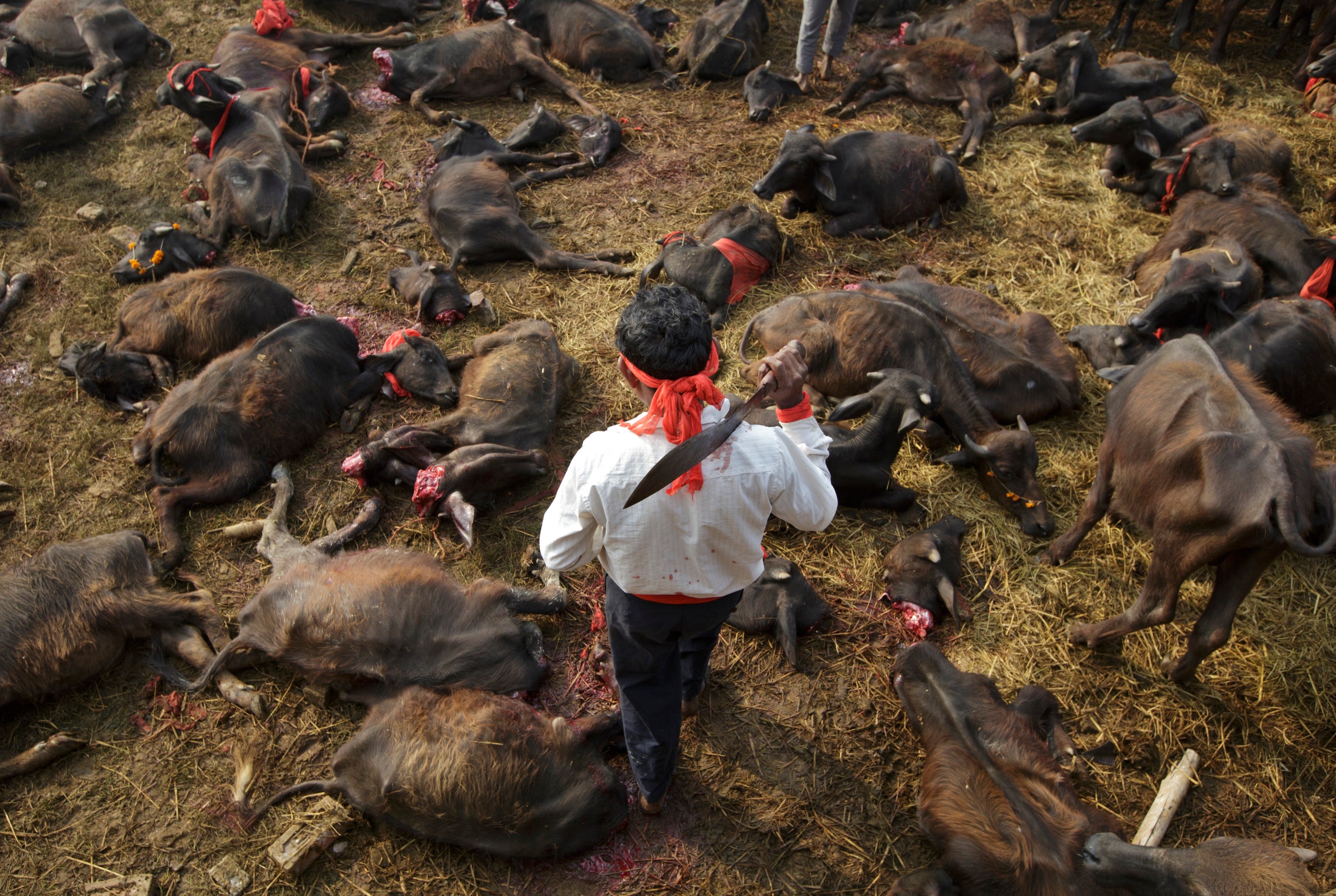
Support our teams on their heartbreaking mission
We know our efforts have helped achieve a significant reduction in the killing, but Gadhimai remains a stomach-churning bloodbath. The festival site is also extremely unsanitary, with no toilet facilities for the millions of devotees who descend on the area on their pilgrimage, and the smell of faeces, death and blood fills the air after the sacrifice. Please take action right now to help.
Read a diary by our campaigners who attended the event in 2014, as published in The Guardian.

